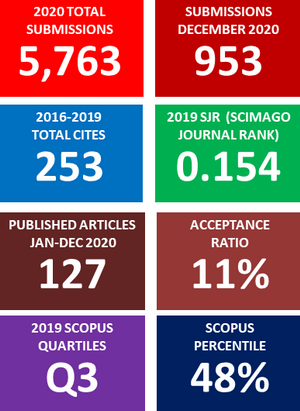Anti-hemolytic, Hepatoprotective, and Nephroprotective Effects of Black Tea Extract against Plasmodium berghei Infected Mice
Keywords:
Anti-hemolytic, hepatoprotective, nephroprotective, black tea, Plasmodium bergheiAbstract
Malarial associated hemolysis and liver and renal injuries are associated with mortality in adult patients with the severe form of this disease. Hence, we aimed to investigate the effects of black tea extract on hemolysis and liver and renal injuries induced by Plasmodium berghei ANKA infected ICR mice. Aqueous crude extract of black tea was prepared using the hot water method. For efficacy test in vivo, a standard 4-day test was carried out. Groups of ICR mice (5 mice of each) were inoculated intraperitoneally with 107 infected red blood cells of P. berghei ANKA. They were then treated orally by gavage with 100, 500, and 1,000 mg/kg of extract for 4 consecutive days. Parasitemia, hematocrit, alanine aminotransferase (ALT), and creatinine levels were measured. The results showed that black tea extract exerted dose-dependent anti-hemolysis and protection from liver and renal injuries induced by malaria, especially at doses of 500 and 1,000 mg/kg. However, 100 mg/kg of this extract did not show any effect. Additionally, there were no any toxicity in hemolysis or liver or renal injuries in normal mice treated with the highest dose of black tea extract. It can be concluded that aqueous crude extract of black tea presented anti-hemolytic, hepatoprotective, and nephroprotective activities against P. berghei ANKA infected mice.
Downloads
Metrics
References
WHO. World Health Organization, World Malaria Report, Available at: http://www.who.int/ malaria/world_malaria_report_2009/en, accessed December 2015.
NJ White, S Pukrittayakamee, TT Hien, MA Faiz, OA Mokuolu and AM Dondorp. Malaria. Lancet 2014; 383, 723-35.
F Lang, M Abed, E Lang and M Foller. Oxidative stress and suicidal erythrocyte death. Antioxid. Redox Signal. 2014; 21, 138-53.
S Audomkasok, W Singpha, S Chachiyo and V Somsak. Antihemolytic activities of green tea, safflower, and mulberry extracts during Plasmodium berghei infection in mice. J. Pathog. 2014; 2014, 203154.
S Percario, DR Moreira, BA Gomes, ME Ferreira, AC Goncalves, PSOC Laurindo, TC Vilhena, MF Dolabela and MD Green. Oxidative stress in malaria. Int. J. Mol. Sci. 2012; 13, 16346-72.
N Nutham, S Sakulmettatham, S Klongthalay, P Chutoam and V Somsak. Protective effects of Tinospora crispa stem extract on renal damage and hemolysis during Plasmodium berghei infection in mice. J. Pathog. 2015; 2015, 738608.
MS Butt, A Imran, MK Sharif, RS Ahmad, H Xiao, M Imran and HA Rsool. Black tea polyphenols: A mechanistic treatise. Crit. Rev. Food Sci. Nutr. 2014; 54, 1002-11.
M Fatima, RK Kesharwani, K Misra and SI Rizvi. Protective effect of theaflavin on erythrocytes subjected to in vitro oxidative stress. Biochem. Res. Int. 2013; 2013, 649759.
B Szachowicz-Petelska, E Skrzydlewska and Z Figaszewski. Protective effect of black tea on integral membrane proteins in rat liver. Exp. Toxicol. Pathol. 2013; 65, 173-9.
V Sharma and LJ Rao. A thought on the biological activities of black tea. Crit. Rev. Food Sci. Nutr. 2009; 49, 379-404.
E Nkhili, V Tomao, HE Hajji, ESE Boustani, F Chemat and O Dangles. Microwave-assisted water extraction of green tea polyphenols. Phytochem. Anal. 2009; 20, 408-15.
W Peters. The chemotherapy of rodent malaria, XXII: The value of drug-resistant strains of P. berghei in screening for blood schizontocidal activity. Ann. Trop. Med. Parasitol. 1975; 69, 155-71.
N Spottiswoode, PE Duffy and H Drakesmith. Iron, anemia and hepcidin in malaria. Front. Pharmacol. 2014; 5, 125.
AR Mawson. The pathogenesis of malaria: A new perspective. Pathog. Glob. Health 2013; 107, 122-9.
KS Akinosoglou, EE Solomou and CA Gogos. Malaria: A haematological disease. Hematology 2012; 17, 106-14.
C Menendez, AF Fleming and PL Alonso. Malaria-related anaemia. Parasitol. Today 2000; 16, 469-76.
S Zougbede, F Miller, P Ravassard, A Rebollo, L Ciceron, PO Couraud, D Mazier and A Moreno. Metabolic acidosis induced by Plasmodium falciparum intraerythrocytic stages alters blood-brain barrier integrity. J. Cereb. Blood Flow Metab. 2011; 31, 514-26.
T Planche and S Krishna. Severe malaria: Metabolic complications. Curr. Mol. Med. 2006; 6, 141-53.
M English, R Sauerwein, C Waruiru, M Mosobo, J Obiero, B Lowe and K Marsh. Acidosis in severe childhood malaria. Q. J. Med. 1997; 90, 263-70.
LC Koopmans, ME van Wolfswinkel, DA Hesselink, EJ Hoorn, R Koelewijn, JJ van Hellemond and PJJ van Genderen. Acute kidney injury in imported Plasmodium falciparum malaria. Malaria J. 2015; 14, 523.
AS Badiane, K Diongue, S Diallo, AA Ndongo, CK Diedhiou, AB Deme, D Ma, M Ndiaye, MC Seck, T Dieng, O Ndir, S Mboup and D Ndiaye. Acute kidney injury associated with Plasmodium malariae infection. Malaria J. 2014; 13, 226.
P Viriyavejakul, V Khachonsaksumet and C Punsawad. Liver changes in severe Plasmodium falciparum malaria: Histopathology, apoptosis and nuclear factor kappa B expression. Malaria J. 2014; 13, 106.
P Wilairatana, S Looareesuwan and P Charoenlarp. Liver profile changes and complications in jaundiced patients with falciparum malaria. Trop. Med. Parasitol. 1994; 45, 298-302.
S Ng, S March, A Galstian, K Hanson, T Carvalho, MM Mota and SN Bhatia. Hypoxia promotes liver-stage malaria infection in primary human hepatocytes in vitro. Dis. Model. Mech. 2014; 7, 215-24.
N Narsaria, C Mohanty, BK Das, SP Mishra and R Prasad. Oxidative stress in children with severe malaria. J. Trop. Pediatr. 2012; 58, 147-50.
W Luczaj and E Skrzydlewska. Antioxidative properties of black tea. Prev. Med. 2005; 40, 910-8.
SM Khan. Protective effect of black tea extract on the levels of lipid peroxidation and antioxidant enzymes in liver of mice with pesticide-induced liver injury. Cell Biochem. Funct. 2006; 24, 327-32.
KVC Mohan, R Subapriya, Y Hara and S Nagini. Enhancement of erythrocyte antioxidants by green and black tea polyphenols during 7,12-dimethylbenz[a]anthracene-induced hamster buccal pouch carcinogenesis. J. Med. Food 2006; 9, 373-7.
Downloads
Published
How to Cite
Issue
Section
License
Copyright (c) 2016 Walailak Journal of Science and Technology (WJST)

This work is licensed under a Creative Commons Attribution-NonCommercial-NoDerivatives 4.0 International License.









